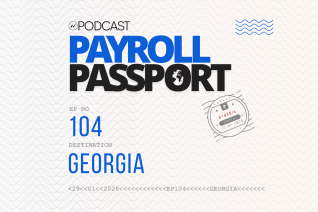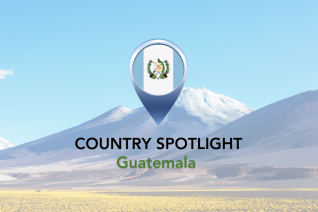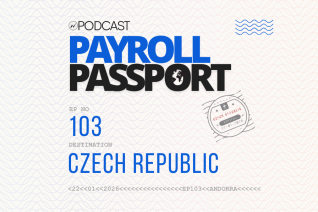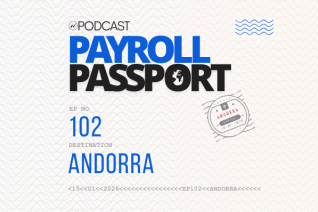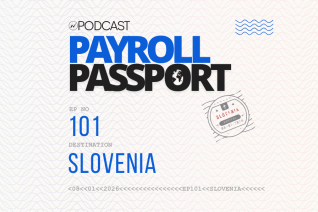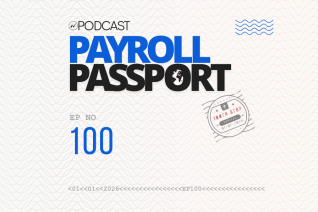Country Spotlight: Payroll in Honduras

Honduras is home to Copán, an ancient Mayan city famous for its intricate stone carvings and rich history. Beyond its cultural treasures, Honduras is a growing hub for businesses in Central America. For companies expanding here, understanding payroll is essential to stay compliant and keep employees happy. From social security contributions and taxes to mandatory benefits and labor regulations, this spotlight guides you through everything you need to know to manage payroll smoothly in Honduras.
Workweek and Working Hours
In Honduras, the standard workweek consists of up to 44 hours for daytime shifts, usually spread over six days, with Sunday as a mandatory rest day. Day shifts are limited to 8 hours daily, while night shifts allow a maximum of 6 hours per day and 36 hours per week. Mixed shifts, combining day and night work, are capped at 7 hours daily or 42 hours weekly. Any work beyond these limits is considered overtime, generally paid at 125% for daytime, 175% for night, and 200% for work on Sundays or public holidays. These regulations help maintain fair labor practices while ensuring adequate rest and compensation for employees.
Payroll Structure
The Honduran payroll system requires compliance with both tax and social security obligations.
Income tax is progressive, starting at 0% for annual earnings up to HNL 217,493.17 and reaching 25% for income above HNL 771,252.39.
Employers contribute roughly 16–17% of an employee’s salary to social programs, including health care, disability, pensions, and labor insurance. Employees contribute about 8–9% of their wages to similar programs. Salaries are typically paid monthly or biweekly, and full-time workers receive two annual bonuses, commonly known as the 13th- and 14th-month salaries, in December and July respectively.
Leave and Benefits
Employees in Honduras are entitled to 10 consecutive days of paid vacation after one year of service, increasing to 12 days after two years, and 20 days after four years with the same employer. There are 10-12 national holidays observed annually, covering civic, religious, and independence celebrations. Workers also receive paid leave for maternity (10 weeks - four before and six after childbirth) and Honduras does not have a statutory provision for paternity leave.
Employers often offer private medical insurance and meal allowances as part of competitive employment packages.
READ NOW | Honduras: A Guideline to Payroll and Employer of Record
Termination and Severance
Under Honduran law, employment contracts can end by mutual agreement or with a justified cause. However, if an employee is dismissed without a justified cause, they are entitled to severance pay, also known as auxilio de cesantía. Severance pay is calculated based on the employee's tenure, ranging from 10 days' salary for 3-6 months of service, to one month's salary per year of service for more than one year, up to a maximum of 25 months. Additionally, the employer must pay for acquired rights, back pay from dismissal until the court decision, and compensation for failure to provide proper notice.
Key Payroll Takeaway
For employers, Honduras offers favorable opportunities in Central America, supported by a growing service and manufacturing sector. However, payroll management requires meticulous compliance with tax rates, contributions, and mandatory benefits. Following local labor regulations not only ensures legal compliance but also strengthens employee satisfaction and trust in a regulated market for global businesses managing regional operations.
Conclusion
Honduras offers a strategic location, a skilled workforce, and a cost-effective business environment, making it an attractive option for investors and companies. Its growing sectors include textiles, agribusiness, and tourism, supported by access to key markets such as the U.S. through trade agreements like CAFTA-DR. While challenges like regulatory complexity and security issues persist, the country’s improving infrastructure and business-friendly policies create significant opportunities. For companies operating in Honduras, understanding and complying with local payroll, tax, and labor laws is crucial to ensure smooth operations and foster positive employee relations. Overall, Honduras presents a promising market for growth in Central America.
TUNE IN NOW | Payroll Passport Ep 39. Honduras
Why choose Neeyamo for your Global payroll needs?
Unlock the power of seamless global payroll management with Neeyamo's expert global payroll services. Neeyamo helps you navigate complex payroll regulations in 160+ countries, ensuring compliance and minimizing risks. Not convinced yet? Here's why we're your ideal partner:
Regulatory Roadblocks? Confidently navigate complex international laws & regulations.
Irritated with Integration? Seamlessly stitch together your HR systems.
Chaotic Control? Command your global workforce from a single platform.
Tardy Transactions? Ensure prompt and precise payroll processing.
Doubtful Digital Defense? Shield your sensitive information from digital threats.
Neeyamo? Your passport to hassle-free global payroll!
Latest Resources
Stay informed with latest updates
If you're curious and have a thirst for knowledge pertaining to the HR, payroll, and EOR universe, don't miss out on subscribing to our resources.




